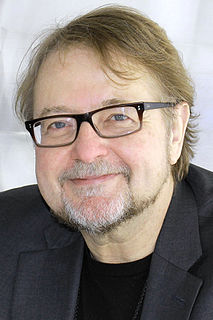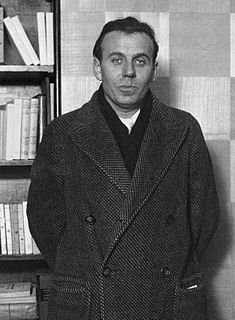A Quote by Luis Alberto Urrea
Death is alive, they whispered. Death lives inside life, as bones dance within the body. Yesterday is within today. Yesterday never dies.
Related Quotes
The soft bonds of love are indifferent to life and death. They hold through time so that yesterday’s love is part of today’s and the confidence in tomorrow’s love is also part of today’s. And when one dies, the memory lives in the other, and is warm and breathing. And when both die - I almost believe, rationalist though I am - that somewhere it remains, indestructible and eternal, enriching all of the universe by the mere fact that once it existed.
Misunderstanding may arise by confusing the Buddhist and scientific definitions of death. Within the scientific system you spoke quite validly of the death of the brain and the death of heart. Different parts of the body can die separately. However, in the Buddhist system, the word death is not used in that way. You'd never speak of the death of a particular part of the body, but rather of the death of an entire person. When people say that a certain person died, we don't ask, "Well, which part died?"
Not much music left inside us for life to dance to. Our youth has gone to the ends of the earth to die in the silence of the truth. And where, I ask you, can a man escape to, when he hasn't enough madness left inside him? The truth is an endless death agony. The truth is death. You have to choose: death or lies. I've never been able to kill myself.
Birth leads to death, death precedes birth. So if you want to see life as it really is, it is rounded on both the sides by death. Death is the beginning and death is again the end, and life is just the illusion in between. You feel alive between two deaths; the passage joining one death to another you call life. Buddha says this is not life. This life is dukkha - misery. This life is death.



































